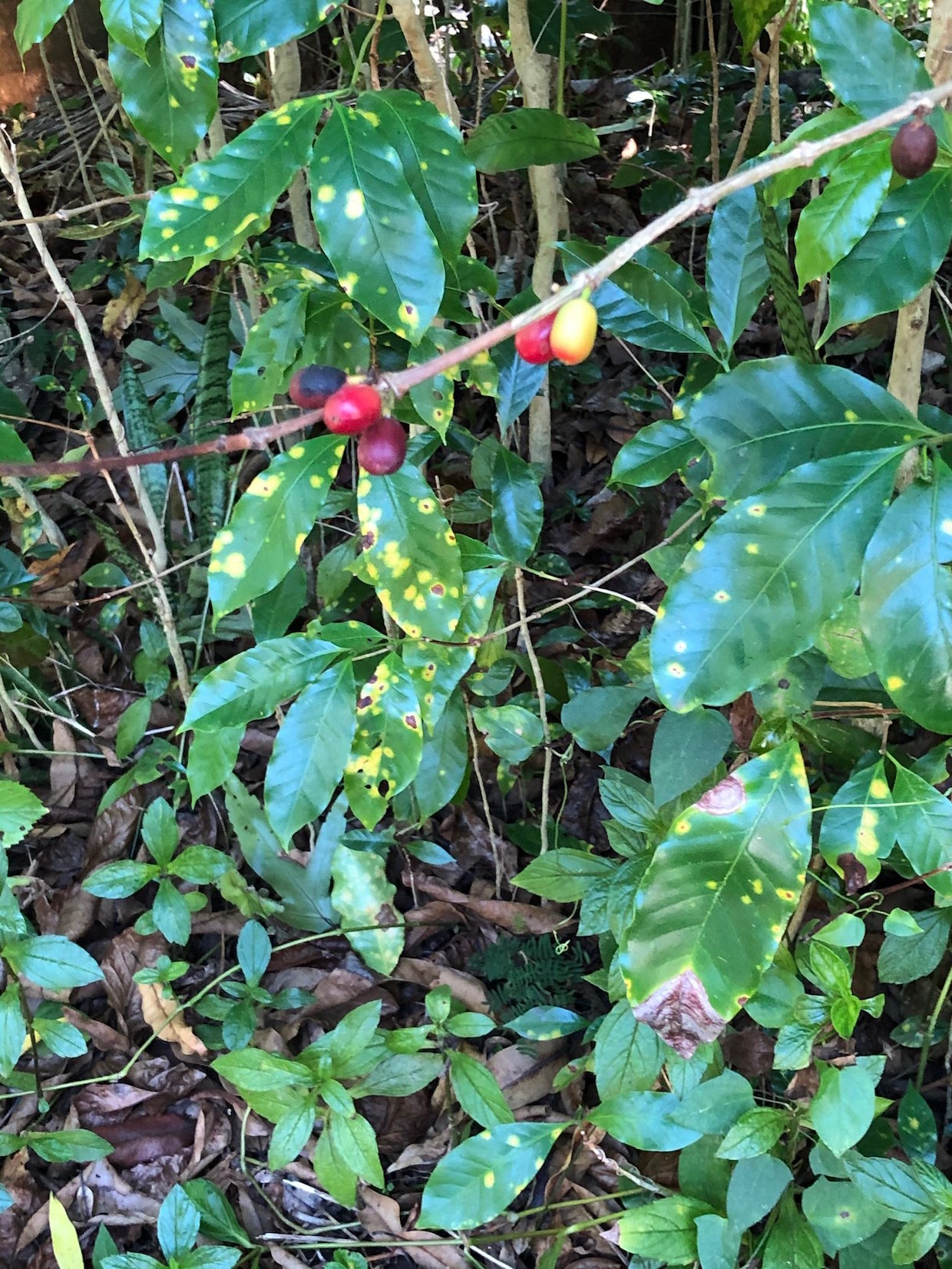The United States Environmental Protection Agency (EPA) has granted a request from the Hawaii Department of Agriculture (HDOA) to allow the use of a chemical fungicide in the state’s emerging battle against coffee leaf rust disease.
Coffee leaf rust, which has popped up in nearly every country or region in which coffee is commercially cultivated over the past 150 years, was discovered for the first time in the state of Hawaii last October on the island of Maui. By November, the disease was identified on the big island of Hawaii, where much of the state’s commercial coffee, including Kona coffee, is grown.
With the ability to quickly destroy huge swaths of crops, the disease created an estimated $3 billion in losses for producers throughout Latin America between 2012 and 2017 alone. The threat looms large in Hawaii, where the market value of green coffee in the 2019-20 season was estimated to be $102 million, with the value of roasted coffee to be $148 million, according to Hawaii Coffee Association estimates.
Related Reading
- Colombian Researchers Discover Aggressive New Variants of Coffee Leaf Rust
- The Lasting Impact of Coffee Leaf Rust: Past, Present and Future in the Fight Against Fungus
- The Price of Zoonotic Transfer: Rethinking Kopi Luwak in the Age of COVID-19
The HDOA requested the exemption for the rust fungicide back in March. The fungicide itself is a product sold by German multinational chemical company BASF called Priaxor Xemium that had not previously been approved by the EPA for use on coffee plants, although the HBOA says it is a commonly used fungicide in the production of various leafy vegetables, strawberries, tomatoes, soybeans, wheat and other crops.
The EPA’s emergency exemption allows Hawaii coffee farmers to use the branded fungicide on a one-year temporary basis unless the product receives permanent EPA approval for use on coffee plants.
“Hawaii coffee growers now have an added method to combat the coffee leaf rust which is extremely difficult to manage,” Hawaii Board of Agriculture Chairperson Phyllis Shimabukuro-Geiser said in an announcement of the emergency approval. “Other efforts to minimize the damage and spread of coffee leaf rust include quarantines on the movement of coffee plants and associated material, the import of disease-resistant coffee plants and the development of integrated pest management strategies.”
The HBOA has created a coffee leaf rust field guide for coffee farmers here. The Hawaii Coffee Association has made coffee leaf rust the focus of its annual conference, which is being held online June 24-25.
Nick Brown
Nick Brown is the editor of Daily Coffee News by Roast Magazine.







Comment